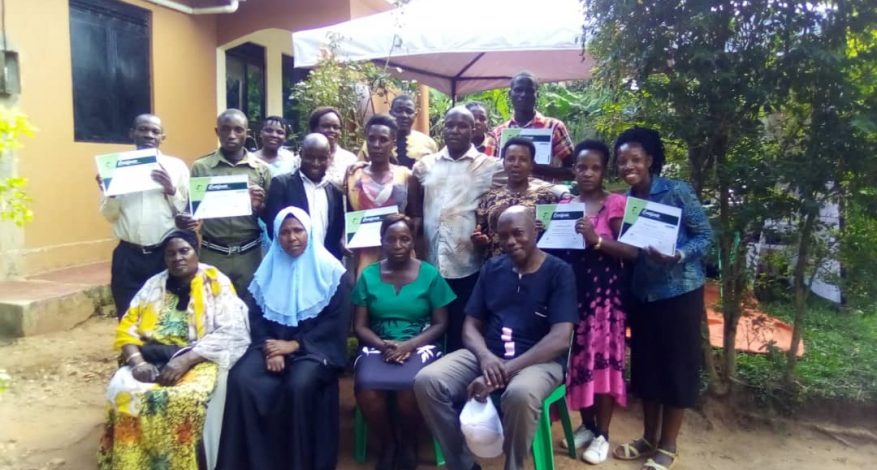Education
Due to poverty, ignorance, and gaps within the education policies to benefit deaf girls, the majority are never enrolled in school, and thus, there are high prevailing rates of illiteracy. This has many negative consequences on deaf girls’ rights; for instance, if they cannot count, then it is hard for them to independently operate any business, however small it may be, as they are unable to count money. On the other hand, if their rights are violated and they have literacy skills, they are able to report to authorities by writing down what was done to them, and this is not possible for an illiterate deaf girl. Service providers (health workers, teachers, police, and members of the local council) pose for the photo with their certificates shortly after concluding a four-day training in April 2022. From left to right is Ms. Sarah Nabatanzi, representative of parents of deaf girls. Rehema Namarome is the Chief Executive Officer of Deaf Girls Rescue. Ms. Samali, the inspector of schools in charge of special education, and Mr Wamala, the senior inspector of schools in Wakiso District, who was the chief guest during the closure of the training.
